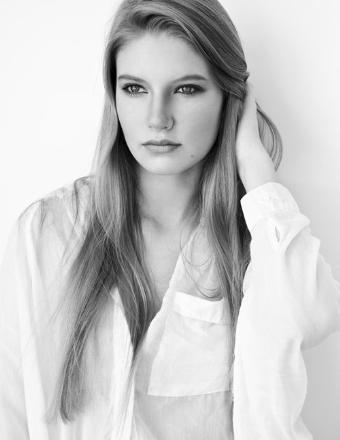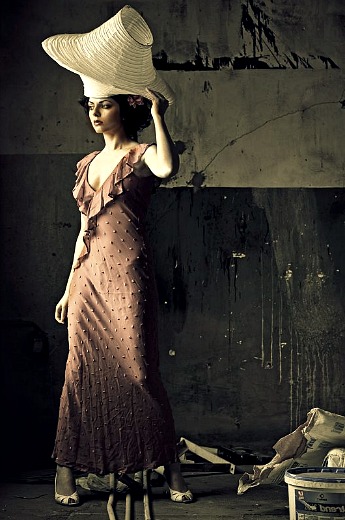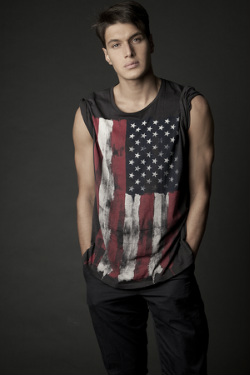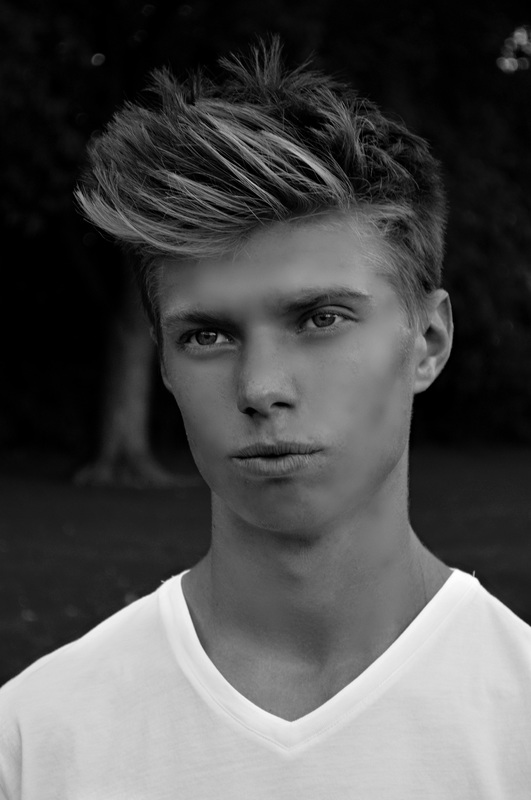By Chuck del Valle
Society Reporter
Youth and beauty are qualities women are usually judged on, while men trade on their economic status. Thus, traditionally, heterosexual men and women each know where they stand in the dating game. But in the gay world, youth, beauty, race, and economic status often intermingle, so it becomes difficult for some gay men to not only understand their position in a relationship, but also to refrain from judging, making assumptions or growing defensive when labels such as “Daddy” or "boy-toy" are mentioned.
With regards to sexuality, many men don’t have a problem with the previously mentioned titles. Rob, a 36-year-old businessman from Chicago, mentions, “Sex is both fun yet very political. The kinds of games you play and the language you use, that’s different but one in the same. It's a heated game that brings race, class, age, and notions of masculinity into play that are often made with the intention of excluding. For me there needs to be an equality, a partnership.”
Rob, a gay Latino who is currently dating a mixed-race man, believes that labels within the gay community are meant to segregate versus create an inclusive environment. "The gay community loves to pick on the little guy within the circle: Blacks, Asians, daddies, femmes, immigrants. No one is quite free of the vicious attitude many queer folk have towards one another."
Pacey, a 24-year-old from Kalamazoo, Michigan, agrees. “As a transgender Asian American, I don't feel accepted within the gay community. I get harassed not just by heterosexual men, but also by homosexuals and transgender people. On the one end, I'm not 'masculine-enough' to be accepted into the standard norms of gay desire, but also not 'trans-enough' because I'm pre-op.”
Age also tends to be a strong factor in queer relationships. For heterosexual men the role of "daddy" is taken for granted: It is often socially-acceptable for a man to date a women half his age, but if a gay couple’s ages varies by 10 years or more, many come to conclusions about the couple. This is particularly true when race and ethnicity are thrown into the picture. Kyle, a 22-year-old Vietnamese-American living in the Lincoln Square neighborhood of Chicago, enjoys dating older white men. "Most older white guys, gay or straight, have an Asian fetish; the infamous 'yellow fever'. I don't mind older guys because they take care of me, particularly economically. My apartment, student loans, and living expenses are taken care of. All I have to do is have sex with him whenever he needs me."
Recent studies show that one third of gay and lesbian relationships are inter-generational. According to a 2011 study by the Pew Research Center's Social and Demographic Trends, 76% of gay men believe that disparity in the LGBTQ community is primarily concerned with competition and economic-stability. The study mentions that men of similar ages often compete over finances and success, and the negative feelings and emotions that go along with those issues only exacerbate the tension.
In inter-generational couplings this kind of competitiveness doesn’t happen as often because there are more vivid differences right from the relationship’s start. “The older man is going to have more money, a much more established career, better connections,” Pacey mentions. “And the younger one is going to bring vivacity, culture, fun, and all kinds of things to the relationship to keep the older one invigorated. In my personal experience, as a younger Asian guy I also bring a set of kinky sexuality that my daddy likes.” That being said, Boy-toy and Daddy relationships are only successfully when the older man wants to take on that financial and emotional responsibility.
There are men who proudly consider themselves Daddies but who don’t take on anyone’s monetary needs. Rob, for example, is in his late thirties and embraces the sexual benefits that come with fitting into a certain preferred physical type, though he never purposely sought out younger men. On the contrary, they pursued him.
“All these guys, mostly Asians and African Americans, in their early twenties were coming on to me,” he says. “I was both shocked and very content; however, I really didn’t know what to do. I didn’t find those guys attractive initially.” However, Rob did eventually begin to associate with these younger men and learned many things about himself. “I realized that it’s the generation gap that turns me on, and it doesn’t really matter if the person is of a particular race, as long as there is a nice big distance between us in age,” he says. “I never had that understanding until then.”
Society Reporter
Youth and beauty are qualities women are usually judged on, while men trade on their economic status. Thus, traditionally, heterosexual men and women each know where they stand in the dating game. But in the gay world, youth, beauty, race, and economic status often intermingle, so it becomes difficult for some gay men to not only understand their position in a relationship, but also to refrain from judging, making assumptions or growing defensive when labels such as “Daddy” or "boy-toy" are mentioned.
With regards to sexuality, many men don’t have a problem with the previously mentioned titles. Rob, a 36-year-old businessman from Chicago, mentions, “Sex is both fun yet very political. The kinds of games you play and the language you use, that’s different but one in the same. It's a heated game that brings race, class, age, and notions of masculinity into play that are often made with the intention of excluding. For me there needs to be an equality, a partnership.”
Rob, a gay Latino who is currently dating a mixed-race man, believes that labels within the gay community are meant to segregate versus create an inclusive environment. "The gay community loves to pick on the little guy within the circle: Blacks, Asians, daddies, femmes, immigrants. No one is quite free of the vicious attitude many queer folk have towards one another."
Pacey, a 24-year-old from Kalamazoo, Michigan, agrees. “As a transgender Asian American, I don't feel accepted within the gay community. I get harassed not just by heterosexual men, but also by homosexuals and transgender people. On the one end, I'm not 'masculine-enough' to be accepted into the standard norms of gay desire, but also not 'trans-enough' because I'm pre-op.”
Age also tends to be a strong factor in queer relationships. For heterosexual men the role of "daddy" is taken for granted: It is often socially-acceptable for a man to date a women half his age, but if a gay couple’s ages varies by 10 years or more, many come to conclusions about the couple. This is particularly true when race and ethnicity are thrown into the picture. Kyle, a 22-year-old Vietnamese-American living in the Lincoln Square neighborhood of Chicago, enjoys dating older white men. "Most older white guys, gay or straight, have an Asian fetish; the infamous 'yellow fever'. I don't mind older guys because they take care of me, particularly economically. My apartment, student loans, and living expenses are taken care of. All I have to do is have sex with him whenever he needs me."
Recent studies show that one third of gay and lesbian relationships are inter-generational. According to a 2011 study by the Pew Research Center's Social and Demographic Trends, 76% of gay men believe that disparity in the LGBTQ community is primarily concerned with competition and economic-stability. The study mentions that men of similar ages often compete over finances and success, and the negative feelings and emotions that go along with those issues only exacerbate the tension.
In inter-generational couplings this kind of competitiveness doesn’t happen as often because there are more vivid differences right from the relationship’s start. “The older man is going to have more money, a much more established career, better connections,” Pacey mentions. “And the younger one is going to bring vivacity, culture, fun, and all kinds of things to the relationship to keep the older one invigorated. In my personal experience, as a younger Asian guy I also bring a set of kinky sexuality that my daddy likes.” That being said, Boy-toy and Daddy relationships are only successfully when the older man wants to take on that financial and emotional responsibility.
There are men who proudly consider themselves Daddies but who don’t take on anyone’s monetary needs. Rob, for example, is in his late thirties and embraces the sexual benefits that come with fitting into a certain preferred physical type, though he never purposely sought out younger men. On the contrary, they pursued him.
“All these guys, mostly Asians and African Americans, in their early twenties were coming on to me,” he says. “I was both shocked and very content; however, I really didn’t know what to do. I didn’t find those guys attractive initially.” However, Rob did eventually begin to associate with these younger men and learned many things about himself. “I realized that it’s the generation gap that turns me on, and it doesn’t really matter if the person is of a particular race, as long as there is a nice big distance between us in age,” he says. “I never had that understanding until then.”
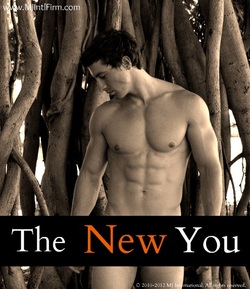
Tony, a 23-year-old African-American man from the Edgewater neighborhood in Chicago, states that the Daddy and Boy-toy dynamics aren't made equal. "Growing up in Chicago, I experienced the young boy and 'daddy' culture with a strange sense of hesitancy. These older, mostly white, guys would cat-call me while I walked to work and offer me money for sex. They had what I would call a thug-life fantasy and loved dressing me up in dew rags and baggy-pants."
A current college student at a prestigious university in Chicago, Tony embarrassingly mentioned he underwent humiliation for the money. "The daddy-figure often comes with a set of pre-conceived notions, particularly if their younger guy is a person of color. The money I got for sex was OK, but I suffered in the process. For many black guys, the 'daddy' comes off as an older master of sort comfortably reclaiming black bodies and sexuality."
Tony isn't alone in his experience. Chase, a current grad student at the University of Illinois at Chicago, believes the Daddy figure shouldn't be something to glorify. "I admit that when I was in my late teens and early twenties, I flocked towards older gay men because they offered me economic stability. However, I was often forced into believing that I had some sort of commitment to them because of the nice things they were buying me. Even when I didn't want to do certain things, he reminded me of how much money I was getting." Chase, now 27, understands the perks of having a Boy-Daddy relationship. "It's very lucrative, similar to an addiction. But like anything, too much of an older man in the gay community leaves you feeling used, and often abused."
Unfortunately, certain gay men are more often the target of Daddy-like figures. "People of color, femme boys, and the economically-disadvantaged are most likely to seek a fatherly-figure in their lives for the financial support," states Osvaldo Pratt, a Kalamazoo-based psychologist who works closely with LGBTQ advocacy groups. "Time and time again, it's the Black and Asian American men who are targeted for their race. The attitudes older, predominantly white, men have towards Black men as 'thugs' and Asian guys as submissive, hyper-sexual beings is disturbing because this can lead to materializing people. When you materialize a group of people, it's easier to accept racism as a 'preference' and allow the commodifying of their bodies."
While the realities of different experiences within the LGBTQ community vary, there is a common understanding that race, class, and economic-stability are intertwined. In urban hubs like New York City, Los Angeles, Chicago, and Miami, vivid gay spots exists specifically catering to Boy-toy and Daddy needs. Within the gay community, however, the highest Boy-Daddy relationships tend to be between a younger Asian boy and an older white man.
“A friend of mine once told me that Asian folks have two choices: you date Asian or you date old,” says Brian Min, an advocate of social-justice based in Tampa, Florida. "As a Korean-American, I think that it's a sad reality we as a community encounter, particularly within the gay community. While I don't find Asian men attractive, I believe that I shouldn't have to limit my options to older white guys just because of what I look like." Brian comments that whenever he logs-on to his online profile on one of the many gay dating websites, he receives numerous messages by older men. "I get comments about how small my eyes are and if I know how to 'love a man long time': it's disgusting."
Many agree that it's this attitude about young gay men of color that fuels the racial and economic disparities that exist within the LGBTQ community. Stereotypes attached to black, brown, and yellow bodies along with older men have created a sub-culture of economic dependency similar to those of prostitution. “I may be the older one in the relationship, but my partner knows that we are equals,” Rob says. “I've never attempted to buy my boyfriend off with gifts or money, and he knows that. It's the 99% of older guys out there buying younger boyfriends that give the rest of us a bad rep.”
A current college student at a prestigious university in Chicago, Tony embarrassingly mentioned he underwent humiliation for the money. "The daddy-figure often comes with a set of pre-conceived notions, particularly if their younger guy is a person of color. The money I got for sex was OK, but I suffered in the process. For many black guys, the 'daddy' comes off as an older master of sort comfortably reclaiming black bodies and sexuality."
Tony isn't alone in his experience. Chase, a current grad student at the University of Illinois at Chicago, believes the Daddy figure shouldn't be something to glorify. "I admit that when I was in my late teens and early twenties, I flocked towards older gay men because they offered me economic stability. However, I was often forced into believing that I had some sort of commitment to them because of the nice things they were buying me. Even when I didn't want to do certain things, he reminded me of how much money I was getting." Chase, now 27, understands the perks of having a Boy-Daddy relationship. "It's very lucrative, similar to an addiction. But like anything, too much of an older man in the gay community leaves you feeling used, and often abused."
Unfortunately, certain gay men are more often the target of Daddy-like figures. "People of color, femme boys, and the economically-disadvantaged are most likely to seek a fatherly-figure in their lives for the financial support," states Osvaldo Pratt, a Kalamazoo-based psychologist who works closely with LGBTQ advocacy groups. "Time and time again, it's the Black and Asian American men who are targeted for their race. The attitudes older, predominantly white, men have towards Black men as 'thugs' and Asian guys as submissive, hyper-sexual beings is disturbing because this can lead to materializing people. When you materialize a group of people, it's easier to accept racism as a 'preference' and allow the commodifying of their bodies."
While the realities of different experiences within the LGBTQ community vary, there is a common understanding that race, class, and economic-stability are intertwined. In urban hubs like New York City, Los Angeles, Chicago, and Miami, vivid gay spots exists specifically catering to Boy-toy and Daddy needs. Within the gay community, however, the highest Boy-Daddy relationships tend to be between a younger Asian boy and an older white man.
“A friend of mine once told me that Asian folks have two choices: you date Asian or you date old,” says Brian Min, an advocate of social-justice based in Tampa, Florida. "As a Korean-American, I think that it's a sad reality we as a community encounter, particularly within the gay community. While I don't find Asian men attractive, I believe that I shouldn't have to limit my options to older white guys just because of what I look like." Brian comments that whenever he logs-on to his online profile on one of the many gay dating websites, he receives numerous messages by older men. "I get comments about how small my eyes are and if I know how to 'love a man long time': it's disgusting."
Many agree that it's this attitude about young gay men of color that fuels the racial and economic disparities that exist within the LGBTQ community. Stereotypes attached to black, brown, and yellow bodies along with older men have created a sub-culture of economic dependency similar to those of prostitution. “I may be the older one in the relationship, but my partner knows that we are equals,” Rob says. “I've never attempted to buy my boyfriend off with gifts or money, and he knows that. It's the 99% of older guys out there buying younger boyfriends that give the rest of us a bad rep.”
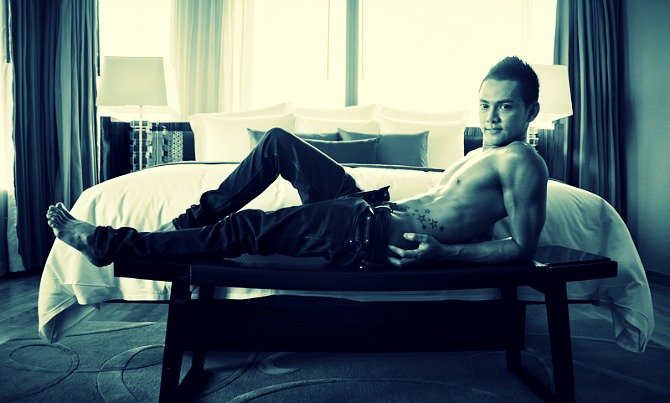
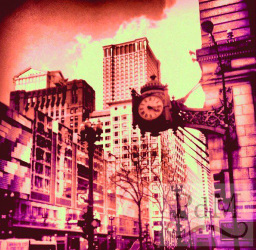
 RSS Feed
RSS Feed
